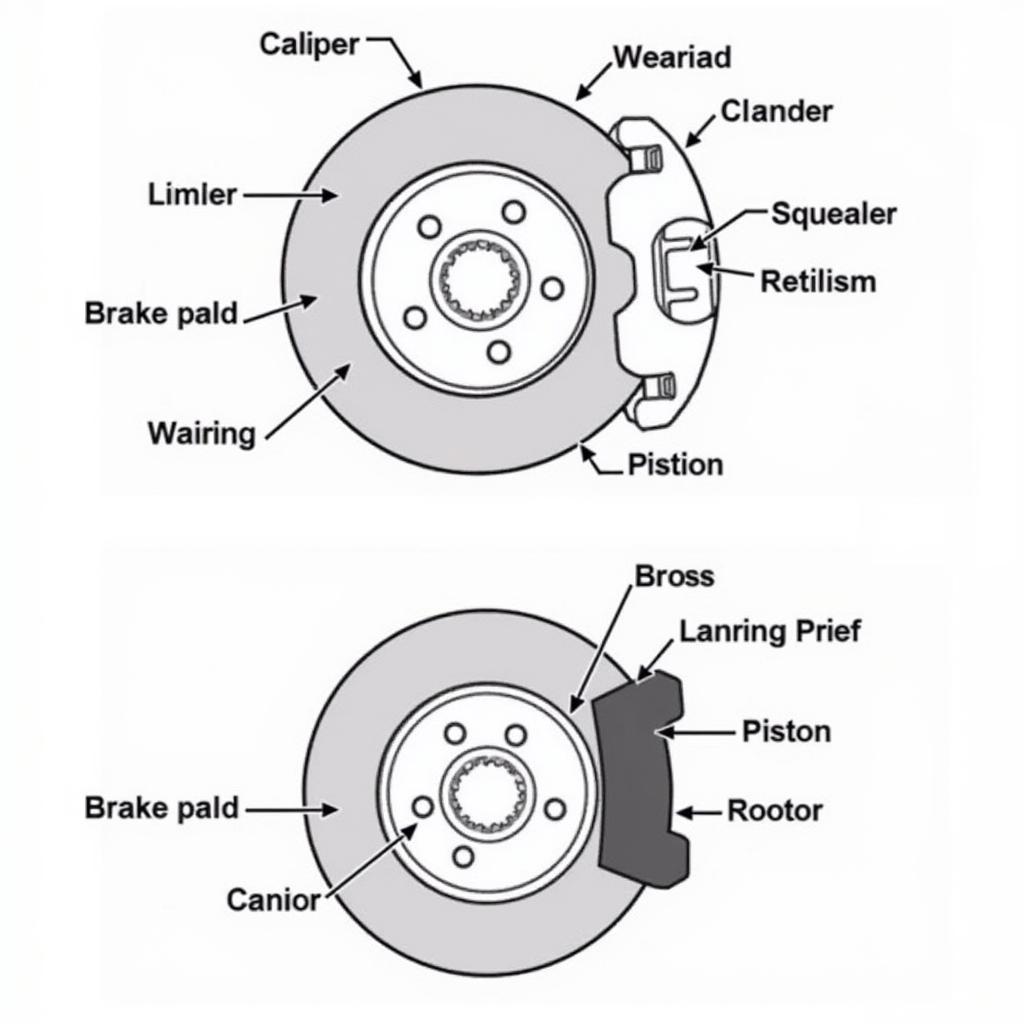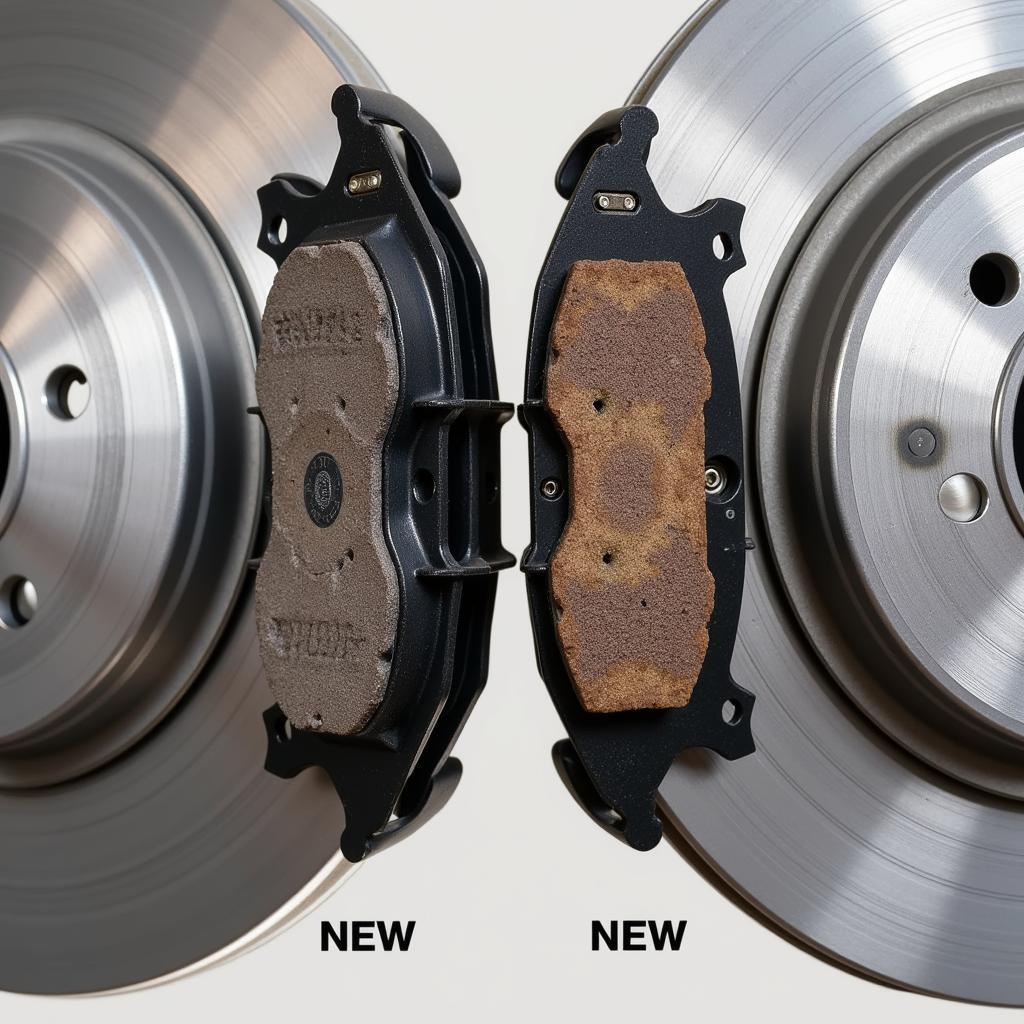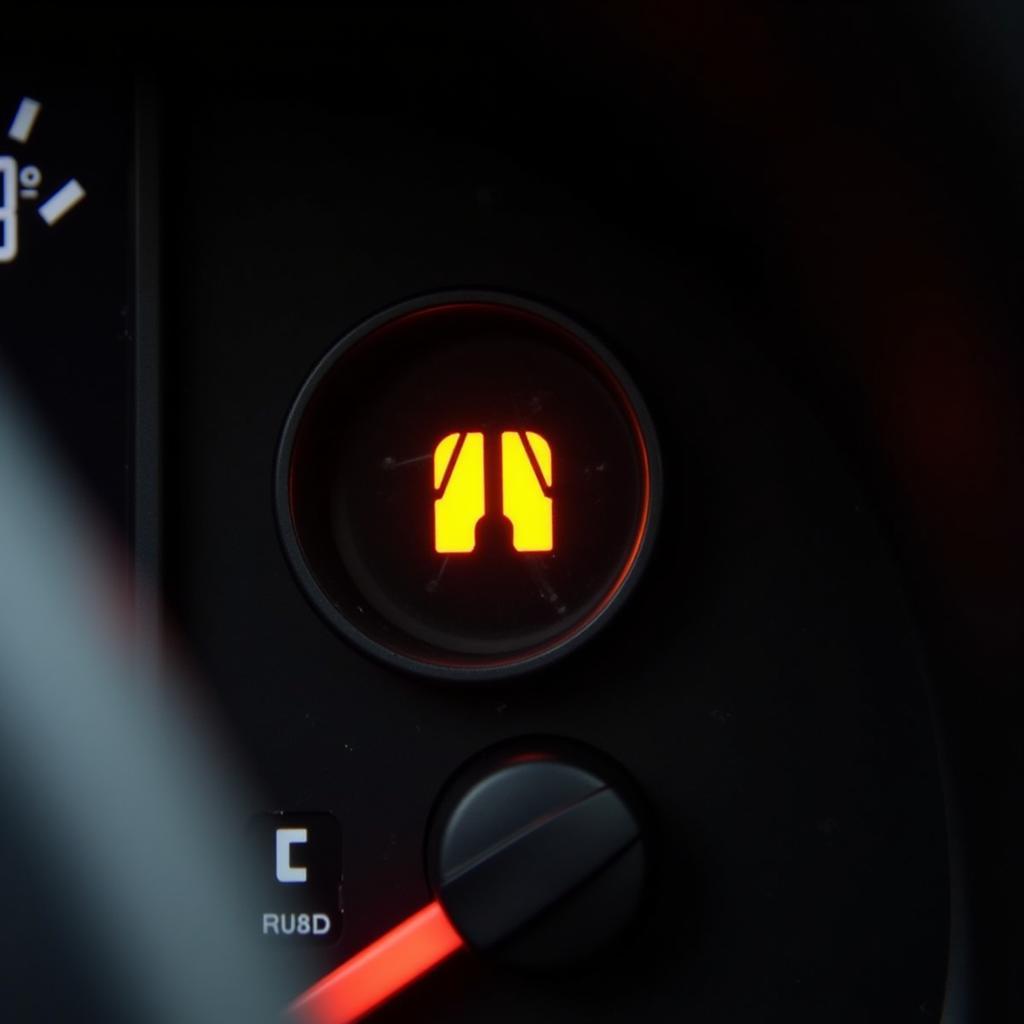That high-pitched squeal emanating from your brakes? It’s likely your brake pad warning squealer letting you know it’s time for some attention. This article will delve into the purpose, function, and troubleshooting of the brake pad warning squealer, providing you with the knowledge you need to address this common automotive issue.
What is a Brake Pad Warning Squealer?
Brake pad warning squealers are small, thin metal tabs strategically placed within your brake pads. They serve as an auditory alert system, designed to produce a high-pitched squealing sound when your brake pads reach a certain level of wear. This noise indicates that your brake pads are nearing the end of their lifespan and need to be replaced soon. Ignoring this warning can lead to more serious and costly brake problems down the line.
Why Do Brake Pads Have Warning Squealers?
Safety is the primary reason for the existence of brake pad warning squealers. They provide a clear and unmistakable signal that your brakes require attention before they compromise your stopping power. This early warning system gives you ample time to schedule a brake pad replacement, preventing potential damage to your rotors and other brake components. This proactive approach saves you money and ensures your vehicle remains safe on the road.
How the Brake Pad Warning Squealer Works
The squealer works through a simple yet effective mechanism. As your brake pads wear down, the friction material decreases, eventually allowing the metal squealer to come into contact with the brake rotor. This contact creates the characteristic high-pitched squealing sound. The noise is deliberately unpleasant to prompt immediate action.
 Brake Pad Squealer Diagram
Brake Pad Squealer Diagram
Troubleshooting Brake Squeal
While the most common cause of brake squeal is worn brake pads, other factors can contribute to this annoying noise. Understanding these potential causes can help you accurately diagnose the problem and avoid unnecessary repairs.
Other Causes of Brake Squeal
- Glazed Brake Pads: Excessive heat can cause the brake pad material to harden, creating a smooth, glazed surface that can squeal.
- Dust and Debris: Accumulation of dust, dirt, or small stones between the brake pads and rotor can also produce a squealing sound.
- Cheap Brake Pads: Lower-quality brake pads may contain metallic particles that can cause squealing, even when they are new.
- Worn or Damaged Rotors: Grooves or warping in the brake rotors can also lead to brake squeal.
Diagnosing the Problem
To determine the exact cause of the squeal, it’s essential to inspect your brakes thoroughly. Look for signs of wear on the brake pads, check for any debris or damage to the rotors, and assess the overall condition of your brake system.
 Worn Brake Pads and Rotor
Worn Brake Pads and Rotor
“A visual inspection is the first step in diagnosing brake squeal,” says automotive expert, Michael Stevenson, ASE Certified Master Technician. “It can often reveal the source of the problem quickly and efficiently.”
Fixing the Squeal
Once you’ve identified the cause of the squeal, you can take the appropriate steps to fix the problem. If the brake pads are worn, they should be replaced immediately.
Replacing Brake Pads
Brake pad replacement is a relatively straightforward procedure, but it’s crucial to follow the correct steps and use the proper tools. If you’re not comfortable working on your brakes, it’s best to take your vehicle to a qualified mechanic.
Addressing Other Issues
If the squeal is not caused by worn brake pads, you may need to clean the brakes, resurface or replace the rotors, or upgrade to higher-quality brake pads.
“Investing in quality brake pads can significantly reduce the occurrence of brake squeal and improve overall braking performance,” advises Sarah Chen, Certified Automotive Technician.
Conclusion
The brake pad warning squealer is a vital safety feature designed to alert you to the need for brake pad replacement. Understanding its purpose and function, along with the ability to troubleshoot related issues, empowers you to maintain your vehicle’s braking system effectively, ensuring safe and reliable performance. Don’t ignore the squeal; address it promptly to prevent further damage and maintain optimal braking performance. Remember, a little preventative maintenance goes a long way in preserving the safety and longevity of your vehicle.
FAQ
- How long can I drive with a squealing brake pad warning? It’s best to have your brakes inspected as soon as possible. Continued driving could damage your rotors.
- Can I replace my brake pads myself? While possible, it requires some mechanical aptitude. If unsure, consult a professional.
- What’s the difference between squealing and grinding brakes? Squealing often indicates worn pads, while grinding suggests metal-on-metal contact, requiring immediate attention.
- How often should I replace my brake pads? It depends on driving habits and conditions, but typically every 30,000 to 70,000 miles.
- Are all brake squeals caused by worn pads? No, other factors like glazed pads, debris, or cheap brake pad material can also cause squealing.
- Why are my new brake pads squealing? This could be due to low-quality pads or improper installation. Consult a mechanic.
- Can driving habits affect brake pad wear? Yes, aggressive driving, frequent braking, and heavy loads can accelerate wear.

